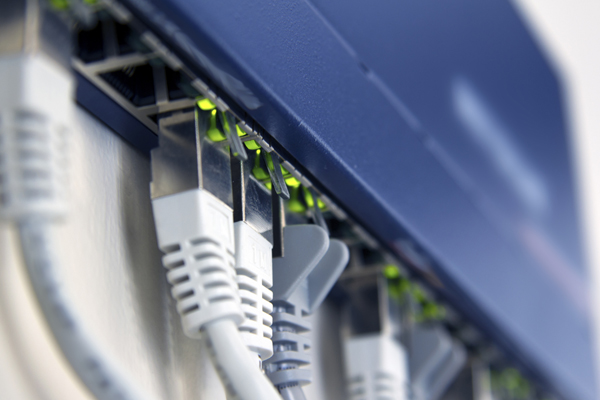3Qs: Net neutrality—what does it all mean?

The Federal Communications Commission recently approved a proposal by its chairman that the agency look more closely at allowing Internet service providers to charge more money for faster service. The issue centers on “net neutrality” and has stirred a nationwide debate—while a recent study found many Americans don’t understand what it all means. We asked Northeastern law professor Michael Bennett, whose research concerns the nexus of law and technology, to discuss net neutrality and the implications of the general public’s lack of knowledge about many technologies people use daily.
What is net neutrality, and how would the FCC chairman’s current proposal affect it?
Net neutrality is a concept, a kind of design protocol, that calls for all Internet traffic to be treated equally. In practice, net neutrality would prevent Internet service providers from discriminating between Internet users with regards to the speed with which those users can interact with websites. You can think of it as an application of egalitarian principles to data and information. The FCC proposal would allow Internet service providers to sell premium service to content providers capable of paying for it—so-called “fast lanes.” Those content providers—say, a Disney or a Comcast—would then be able to provide faster access to their customers than competitors unable to afford the premium access fee.
A recent study found 57 percent of Americans didn’t know enough about net neutrality to have an opinion on it. What are the public awareness challenges of this debate as well as others around the Internet and our increasingly digital world, and how can they be solved?
Traditionally, Americans have tended to embrace technological developments of almost all stripes rather instinctively. Novelty, innovation, labor-savings, future-orientations: these are all attributes of an American ethos, as well as selling points of most types of new devices and systems. Alongside this love of technologies, sits a deep well of know-nothingness, an at times almost gleeful indifference to how the technologies work and, more importantly, how that might work differently. This perspective on the built world becomes easier and easier to embrace as the devices become more esoteric, more arcane, more inscrutable. If you can’t bother learning how your car engine works, odds are you certainly won’t invest in learning how a quantum dot functions. Ditto for the communication protocol that enables the Internet.
This growing societal ignorance—I tend to call it “technological adolescence”—is problematic for many reasons. Chief among them? First, it means that our relations with the world that humans have built is fundamentally mystical; our artifacts usually work as designed, but most Americans have no idea how or why. Second, it means that the vast majority is unable to participate meaningfully in debates about the political consequences of the built world having been built in certain ways rather than others. Devices, systems, artifacts: these things can be designed to encourage certain types of human behavior much more effectively than traditional laws, but it’s much more difficult to point that out.
You’ve noted that the likely changes at the heart of this debate align with what you describe as “a new Gilded Age.” What do you mean by this?
I wrote an essay that was published in Slate last year about what seems to me a new Gilded Age in America. The piece concerned artificial organs, the optimism of some of the researchers developing them, and the likelihood that increasingly stark wealth distribution in America would lay waste to those rosy visions. A defeat of net neutrality would be consistent with a new Gilded Age because the basic rationale behind the arguments of critics is that Internet service ought to be tiered, that users should get service commensurate with the rents that pay to service providers. It’s silly to not imagine the victory of such a position leading to some small faction of wealthy users having superior service while most others live with second-class access. Imagine the economic logic of airlines applied to the Internet: first-class gets you sparkling wine, leg room, and cordial service (I’m told), while economy gets you bathroom lines, all-too-cozy proximity to fellow travelers beside, in front, and behind you, and a bag of seven to 10 peanuts—if you’re fortunate.






